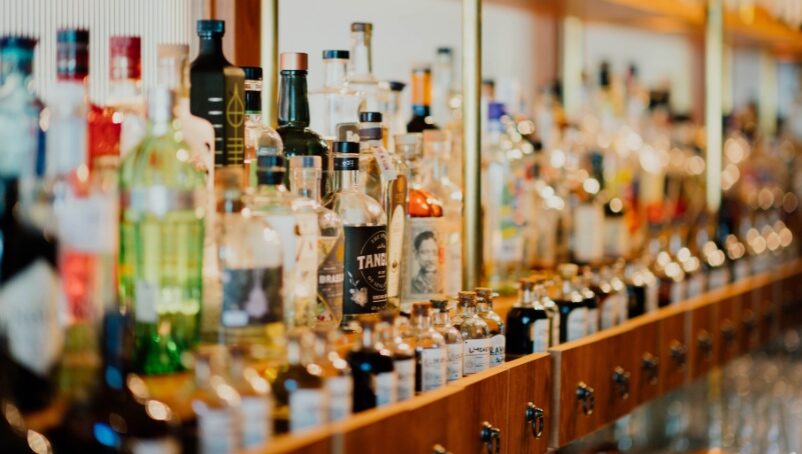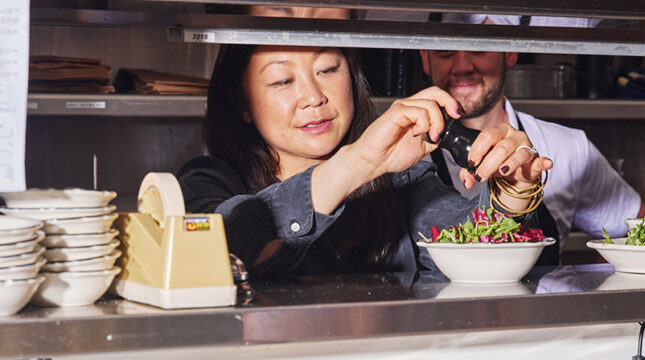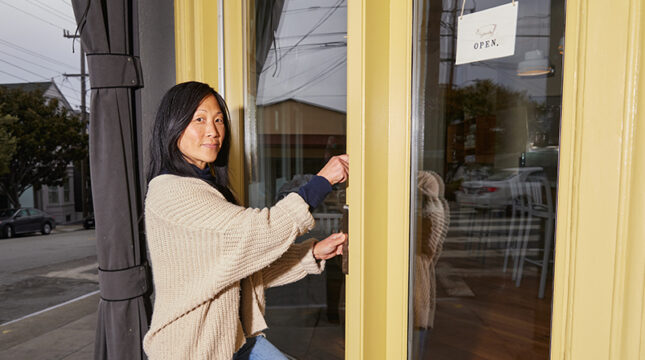Do you need a California liquor license to sell alcohol?
If you’re looking to open a food service business in California that sells alcohol, you will need a license issued by the California Department of Alcoholic Beverage Control (ABC).
With over 50 licenses available and an extremely in-depth and lengthy process, applying for a liquor license in California can be intimidating. However, the ABC has district offices throughout the state with staff on hand to help you throughout the process.
How much is a liquor license in California?
There are two costs for getting a liquor license in California: The application fee and the annual fee.
The application fee is what it costs to apply for a license, and the annual fee is what you must pay annually to keep your license valid.
The California ABC offers over 50 licenses to sell alcohol in the state. But for restaurants, cafes, caterers, etc. looking to sell alcohol, you’ll want to consider two license types: On-Sale Beer & Wine – Eating Place and On-Sale General – Eating Place.
An On-Sale Beer & Wine – Eating Place license allows for the sale of beer and wine only, while an On-Sale General license allows for the sale of beer, wine, and spirits. Recent changes in California law give the holder of either license the ability to sell beer or wine to-go as long as it is in its original sealed container (e.g., unopened cans of beer or unopened bottles of wine).
On-Sale Beer & Wine license fees:
- Application fee (new): $990
- Application fee (transfer): $365
- Annual fee: $495
The number of On-Sale General – Eating Place licenses issued is limited to one license for every 2,000 people in each county. So, you might not be able to get a new license and instead will have to purchase one from an existing business.
On-Sale General license fees:
- Application fee (new): $17,335
- Application fee (transfer): $1,370
- Annual fee: ranges from $860 to $1,355 depending on the size of the city you’ll be doing business in.
There is no state limit for On-Sale Beer & Wine licenses.
How to get a California liquor license
Getting a liquor license in California follows five steps:
1. Initial filing
First, go to your local ABC District Office and speak with their staff, which helps determine which license to apply for and provides the initial forms you’ll need to start the process.
2. Notifications
Next, post a Public Notice of Application on the front of your business for 30 days. The ABC will notify your local officials to ensure you meet all county or city requirements.
3. Investigation
ABC conducts a thorough investigation, as required by law, and will gather information to determine if you and the premises of your future business qualify for a license.
4. Final review
ABC headquarters reviews everything you’ve submitted and all the information they gathered during their investigation to make a final decision.
5. Issuance of license
You will be issued a license when the final review is completed and everything is approved.
Getting a liquor license in California can be a long process, so be prepared. ABC warns that a person-to-person license transfer takes an average of 75 days to be approved, while a new license takes an average of 90 days.
Why so long? Well, regardless of getting a new or transferred license, you’ll need to post a Public Notice of Application / Notice of Intention to Sell Alcohol on your future business for at least 30 days.
In addition, ABC thoroughly investigates you and your business, working with your local officials to ensure all ordinances will be adhered to before opening.
Due to the lengthy process, ABC warns against making extensive financial commitments or plans for grand openings until you have your license.
Insurance for a California liquor license
Whether you’re getting your liquor license for a pop-up restaurant or want to serve beers at your burger joint, you need the right insurance to protect your business. Below, you’ll find some of the most common types of business insurance recommended in California.
Liquor liability insurance
While not required in California, liquor liability insurance can protect your business from some risks associated with serving alcohol.
For example, say an intoxicated customer knocks another patron down, causing an injury. Liquor liability insurance can help pay for alcohol-related injuries, property damage, legal and medical fees.
General liability insurance
While not required by law, California general liability insurance protects you from the most common business risks, including slip-and-fall injuries to people who are not your employees and accidental property damage to property you don’t own.
Workers’ compensation insurance
California requires businesses with employees, whether full-time or part-time, to carry workers’ compensation insurance. It can help cover expenses if an employee is injured or becomes ill because of their job.
Commercial property insurance
Commercial property insurance helps protect the things you need to do business, including your inventory, kitchen equipment, front-of-house furnishings and the structure of your business if you own it.
California liquor license liability and dram shop laws
The ABC requires any employee or manager who takes orders, makes drinks, or serves alcohol to patrons to be certified by an accredited Responsible Beverage Service training provider. They must also pass an ABC exam within 60 calendar days from the first date of employment.
California essentially has no dram shop laws; that is, you cannot be held legally responsible for your patrons’ actions. This means that if someone becomes intoxicated in your restaurant, decides to drive home and causes an accident on the way; the accident is their fault, not yours.
The only exception to this law is if you knowingly serve an intoxicated minor who then goes on to cause harm. In that particular case, you can be held responsible. Of course, you shouldn’t be serving minors in the first place, as it’s illegal.
California liquor license requirements
To be eligible for a liquor license in California, you need to jump through several hoops in addition to the lengthy ABC application process.
First, you must request a Sales Tax Permit from the California Department of Tax and Fee Administration. Don’t forget this step — it is a misdemeanor to sell alcohol in the state without one.
Next, you’ll have to register with the Board of Equalization, which oversees the alcoholic beverage tax program. The alcoholic beverage tax program is a per-gallon excise tax collected on the sale, distribution, or importation of alcoholic beverages in California.
After that, you’ll need to contact the nearest United States Treasury Department, Alcohol and Tobacco Tax and Trade Bureau office to ensure you meet all federal requirements. If a Federal basic permit or a special Occupational Tax Stamp is required, the same person applying for (and getting issued) the ABC license must be the one to apply.
Finally, before you open your business, you must contact your local county or city officials to determine if a local business license is required.
In addition, during this process, you’ll have to post a Notice of Intention to Sell Alcohol on the front of your future establishment for at least 30 days.
While this is a lot of effort, the ABC has district offices throughout the state with trained staff to help you throughout the process.
California liquor license renewal requirements
As troublesome as getting a new or transferred license in California may be, it’s super simple to renew.
As long as your license is active and you’re in the renewal phase (within 60 days before the expiration date), you have to go online, pay the annual fee, and you’re done.
If your license was suspended in the last year or you need to be on time to renew, you’ll have to visit your local ABC District Office. They’ll assess any fines or penalties and help you get your license in good standing once again.
Can a California liquor license be transferred?
Yes, liquor licenses can be transferred in California. Because California has a limit on On-Sale General (beer, wine, and spirits) licenses, sometimes the only way to get one is to purchase it from another license holder.
To note, just because you purchase a license doesn’t mean ABC will accept it. When you purchase a license, you still must go through the same application process as someone getting a new license. The ABC will approve or deny the transfer just as they would approve or deny a new licensee.
How NEXT helps support California restaurants, cafes, caterers and food service businesses
NEXT has customized insurance on tap. We offer liquor liability insurance alongside our general liability coverage to help protect the food and beverage industry.
Get a quote, review coverage options, purchase insurance and have your certificate of insurance in under 10 minutes. Access your policy 24/7 via web or mobile app.
Start a free quote with NEXT.






